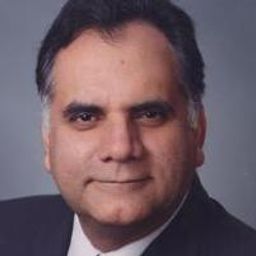What Does the Heritage Citizens Movement Change?
Mon statut pour la session
What does the Citizens’ Heritage Movement change? In view of what has been mentioned above, the answer may seem easy. Yet on the ground, the same recriminations are being tirelessly expressed. Stakeholders still summon the troops to new battles and highlight the many pitfalls to safeguarding. Tinkering, a need for urgent action, and/or volunteer fatigue doubtlessly undermine many projects. Will the movement end up running out of gas? Is it the only safeguard against indifference? If it has enabled great things and raised the awareness of a wider audience, can it also be looked at critically? Are there different trends within the movement? Can we compare the work of scholarly associations with the various friends of heritage? Behind the legitimate objectives, can there be other interests? Has the professionalization of certain groups transformed the civic roots of heritage activism? The proposed session intends, from a historic or contemporary perspective, to invoke various real-world experiences in order to overcome naive optimism about citizen involvement and explore some possible ways to understand a phenomenon which, despite its essential nature, remains little studied.
We understand Citizens’ Heritage Movement in a very large extent which could include an individual trying to alert his neighbourhood to a more organized group with regular members and paid staff. In between, the movement could take a large variety of expressions. Its action is also plural reaching from activism of every sort to public education and technical assistance, and from management for the local community to touristic enhancement.
As part of the session, we invite researchers to provide a critical reflection on the proposed general theme: “What does the Citizens’ Heritage Movement change?” They could refer to studies in order to document or broaden the issue of citizen involvement, focusing more specifically on the following aspects:
• The historical or contemporary role of the citizens movement;
• The response and behaviour of authorities toward citizen requests;
• The evaluation of actions taken and their sustainability;
• The pitfalls and challenges of the citizens movement;
• The future of the citizens movement.
Beyond the avenues mentioned, this call for contributions aims to better understand and define the citizens movement by way of a critical approach. Any other suggestion will be considered with great attention.
Sous sessions
Mon analyse de la formation et des actions de deux coalitions actives lors de controverses en art public, très médiatisées à Montréal, révèle que ces coalitions méritent l’attention car elles lient des citoyens profanes et des experts en art et en patrimoine. La première coalition comprend plus d’une vingtaine d’organismes sociaux, économiques, politiques, culturels et artistiques, en plus d’individus. Elle est initiée en 2002 par le Comité SOS La Joute dans le quartier Hochelaga–Maisonneu...
L’étude du patrimoine soviétique est actuellement un champ de recherches en construction. Afin d’effleurer les multiples problématiques que cette question soulève en Russie, cette communication propose de l’aborder sous l’angle des moyens, des acteurs et des enjeux de sa patrimonialisation, et plus précisément de mettre en perspective le rôle désormais crucial de la société civile dans ce processus complexe. L’héritage architectural soviétique est en effet sujet à des appréhension...
Cette communication propose de questionner l’idée de patrimonialisation comme condition sine qua non pour la sauvegarde de l’architecture moderne. Récemment, deux exemples ont démontré de manière tristement éloquente qu’un statut patrimonial ou une valeur artistique reconnue ne garantissent pas la rédemption d’œuvres bâties. Bien qu’elle ait bénéficié d’une citation en vertu de la Loi sur les biens culturels (2006), l’église Notre-Dame-de-Fatima à Jonquière (Léonce Desgagné et Paul-Marie C...
As a member of a research group, I investigate the role of associations and scholarly societies in the construction and the promotion of heritage in Picardie (France). I therefore will present an overview of the citizens’ heritage movement in Laon, the administrative centre of the Aisne department. The city counts twenty-three historical and/or heritage associations, and two scholarly societies. Based on an eight-month ethnographic fieldwork conducted in this city, this paper will address ...
Kingston, Ontario, is known for its nineteenth-century limestone buildings and its associations with home-town boy Sir John A. Macdonald, Canada’s first prime minister. A great deal of architectural heritage has been saved via citizen activism from the 1970s on. However, the city suffers from the neglect of the physical and intangible histories of other parts of the city, and from an extreme oversimplification and “whitewashing” of its history. Only now is a second wave of citizen heritage...
The Quebec Cultural Heritage Act, adopted by the province’s National Assembly, came into force in 2012, replacing the Cultural Property Act (1972), which dated back forty years. It took five years for the text to be adopted. Two consultations were held during this period. A first consultation involved traveling to twelve Quebec municipalities, hearing two hundred and two submissions and receiving one hundred and nine online comments. Around fifty submissions were filed during the second co...
Depuis les années 1990, la notion de paysage s’est développée à travers diverses approches et différentes disciplines. Objet essentiellement géographique à ses débuts, le paysage peut aujourd’hui se définir culturellement, socialement voire même politiquement. Derrière cette évolution se retrouve l’influence de la notion de patrimoine et son évolution, notamment à travers l’apparition du « paysage culturel ». Mais le paysage est aussi devenu un instrument majeur du développement des territ...
Given that heritage, tangible and intangible, is considered as a cultural/capital resource, this paper will depart from the premise that participatory heritage development is one the axes of cultural development, which is in turn a major player in the sustainable community development process. Furthermore, in order for heritage to be considered an asset (not a liability), and for its development play a role in cultural/community development, it must be based on community values and aspirat...







